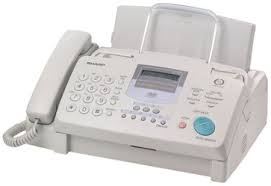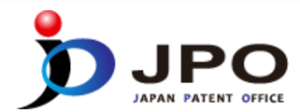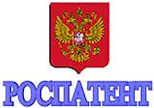In this article I will describe what I think are Best Practices for filing of US provisional patent applications. Continue reading “Best Practices for filing a US provisional patent application”
How long USPTO takes to publish a 371 case
A colleague in Minneapolis asked me the other day how long it takes the USPTO to publish an entry into the US national phase.
MPEP § 1120(IV) says:
The projected publication date normally will be the later of: (1) eighteen months from the earliest filing date claimed; or (2) fourteen weeks from the mailing date of the filing receipt. The publication process takes about fourteen weeks.
I identified our most recent half dozen published patent applications that were entries into the US national phase. And another half dozen published patent applications from a year ago that were entries into the US national phase. And arrived at some average publication delays. It was nothing like fourteen weeks.
Continue reading “How long USPTO takes to publish a 371 case”
ISA/RU search fee decreases today
It is recalled (see blog post of July 20, 2018) that some time ago it was planned that the ISA/RU search fee would decrease. The fee change has now taken place. For US filers, the search fee for the Russian international searching authority decreases today from $691 to $638.
Should USPTO ban non-electronic trademark filings?
When I was first in practice, many years ago, the only way to file a trademark application was on paper. Another way to say this is that the rate of e-filing was zero percent.
The US Trademark Office introduced trademark e-filing on March 20, 2000. The first-ever electronic US trademark application was filed at 10:30 AM on that day. Later that day, I launched the E-Trademarks listserv, an online community that continues to be very active now in 2018.
I did not have an opportunity to e-file a US trademark application for the first time until ten days later, on March 30, 2000.
Interestingly, in those early days the way that an electronically filed US trademark application got examined was that somebody at the Trademark Office printed it out on paper, and then the printout was injected into the workflow as if it had been paper-filed. It took almost a year for the Trademark Office to implement electronic workflow for the Examining Attorneys.
By now in 2018 the rate of e-filing, depending on your metric, is something in excess of 99%. But it seems that 99% is not good enough for the Trademark Office. The Trademark Office would like to eliminate that last 1%, as may be seen in the Federal Register notice of May 30, 2018. The Trademark Office proposes to mandate that only e-filing be used for trademark filings, thus eliminating the option of paper filing except in certain narrow situations.
When I was first in practice, pretty much the only way that a group of trademark practitioners could make their view heard in a rulemaking proceeding was through a professional or industry association such as INTA or AIPLA. In recent years, however, the E-Trademarks listserv has submitted comments. You can see comments that the listserv submitted in 2016. And just yesterday the E-Trademarks listserv submitted comments in the present rulemaking. You can see the comments here.
“Pegged” art units in the USPTO
 In a previous blog article, I talked about the USPTO’s practice of not reporting pendency numbers bigger than 30. Said differently, if a particular art unit has a backlog that extends further than 30 months into the future, the USPTO will not reveal the actual backlog but will instead report the number 30. In the world of d’Arsonval meter movements, this would be like a meter that is “pegged” at 30.
In a previous blog article, I talked about the USPTO’s practice of not reporting pendency numbers bigger than 30. Said differently, if a particular art unit has a backlog that extends further than 30 months into the future, the USPTO will not reveal the actual backlog but will instead report the number 30. In the world of d’Arsonval meter movements, this would be like a meter that is “pegged” at 30.
There are 514 art units at the USPTO. Right now in July of 2018, how many of those art units are “pegged”? Which art units are “pegged”?
In the next blog article I will list some of the art units with the smallest backlogs.
USPTO’s art units with the smallest backlogs
In a previous blog article I listed the fifty art units at the USPTO (out of 514 art units) that are “pegged”. What this means is that the backlog for the art unit is so great that it is longer than 30 months, and the USPTO does not report a number bigger than 30 for the backlog.
What the alert reader might ask is, which are the art units with the smallest backlog? Here is a list of the 49 art units which, in July of 2018, have a backlog of seven months or less. Continue reading “USPTO’s art units with the smallest backlogs”
We don’t list a fax number any more
 When I founded our firm a quarter of a century ago, I did some of the things that were absolutely mandatory in those days, for example:
When I founded our firm a quarter of a century ago, I did some of the things that were absolutely mandatory in those days, for example:
- Contact Martindale-Hubbell to get the firm listed there
- Get a postage meter
- Get a fax machine and connect it with a dedicated land line telephone line
We used to pay a thousand dollars a year for our listing in Martindale-Hubbell, but we dropped that maybe ten years ago. We got rid of our postage meter, which used to cost us a hundred dollars a month, maybe five years ago. And now in 2018 we have dropped our public fax number. Maybe you should, too. Continue reading “We don’t list a fax number any more”
ISA/JP becomes easier for US filers to use
 The way it has been in the past, if a US PCT applicant were to make use of the Japan Patent Office as an International Searching Authority, the applicant would need to make sure that the application falls within particular subject matter (“green tech”). The practical consequence of this was that as a general matter, US filers tended not to select ISA/JP. But things changed on July 1, 2018 and now it is much easier for US filers. Continue reading “ISA/JP becomes easier for US filers to use”
The way it has been in the past, if a US PCT applicant were to make use of the Japan Patent Office as an International Searching Authority, the applicant would need to make sure that the application falls within particular subject matter (“green tech”). The practical consequence of this was that as a general matter, US filers tended not to select ISA/JP. But things changed on July 1, 2018 and now it is much easier for US filers. Continue reading “ISA/JP becomes easier for US filers to use”
An opportunity to save a little money on search fees

On August 1, 2018 the search fee payable to the Russian international searching authority will drop. It is presently $691 and will drop to $638.
This offers an opportunity to save a little money for the applicant who is planning to use ISA/RU. If you have a client who is planning to file a PCT application using ISA/RU, and if you have the ability to postpone the filing until August 1, you can save $53.
EPO search fee for US PCT filers will drop September 1
 The search fee paid in US dollars by US filers for a PCT search carried out by the EPO will drop on September 1, 2018.
The search fee paid in US dollars by US filers for a PCT search carried out by the EPO will drop on September 1, 2018.
Presently $2207, it will drop to $2095.
